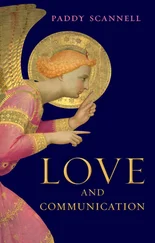Leon Trotsky - Dictatorship vs. Democracy (Terrorism and Communism) - a reply to Karl Kantsky
Здесь есть возможность читать онлайн «Leon Trotsky - Dictatorship vs. Democracy (Terrorism and Communism) - a reply to Karl Kantsky» — ознакомительный отрывок электронной книги совершенно бесплатно, а после прочтения отрывка купить полную версию. В некоторых случаях можно слушать аудио, скачать через торрент в формате fb2 и присутствует краткое содержание. Жанр: foreign_prose, на английском языке. Описание произведения, (предисловие) а так же отзывы посетителей доступны на портале библиотеки ЛибКат.
- Название:Dictatorship vs. Democracy (Terrorism and Communism): a reply to Karl Kantsky
- Автор:
- Жанр:
- Год:неизвестен
- ISBN:нет данных
- Рейтинг книги:5 / 5. Голосов: 1
-
Избранное:Добавить в избранное
- Отзывы:
-
Ваша оценка:
- 100
- 1
- 2
- 3
- 4
- 5
Dictatorship vs. Democracy (Terrorism and Communism): a reply to Karl Kantsky: краткое содержание, описание и аннотация
Предлагаем к чтению аннотацию, описание, краткое содержание или предисловие (зависит от того, что написал сам автор книги «Dictatorship vs. Democracy (Terrorism and Communism): a reply to Karl Kantsky»). Если вы не нашли необходимую информацию о книге — напишите в комментариях, мы постараемся отыскать её.
Dictatorship vs. Democracy (Terrorism and Communism): a reply to Karl Kantsky — читать онлайн ознакомительный отрывок
Ниже представлен текст книги, разбитый по страницам. Система сохранения места последней прочитанной страницы, позволяет с удобством читать онлайн бесплатно книгу «Dictatorship vs. Democracy (Terrorism and Communism): a reply to Karl Kantsky», без необходимости каждый раз заново искать на чём Вы остановились. Поставьте закладку, и сможете в любой момент перейти на страницу, на которой закончили чтение.
Интервал:
Закладка:
And, on the other hand, the Socialist party, enjoying traditional influence, which does not render itself an account of what is going on around it, which does not understand the revolutionary situation, and, therefore, finds no key to it, which does not believe in either the proletariat or itself – such a party in our time is the most mischievous stumbling block in history, and a source of confusion and inevitable chaos.
Such is now the role of Kautsky and his sympathizers. They teach the proletariat not to believe in itself, but to believe its reflection in the crooked mirror of democracy which has been shattered by the jack-boot of militarism into a thousand fragments. The decisive factor in the revolutionary policy of the working class must be, in their view, not the international situation, not the actual collapse of capitalism, not that social collapse which is generated thereby, not that concrete necessity of the supremacy of the working class for which the cry arises from the smoking ruins of capitalist civilization – not all this must determine the policy of the revolutionary party of the proletariat – but that counting of votes which is carried out by the capitalist tellers of parliamentarism. Only a few years ago, we repeat, Kautsky seemed to understand the real inner meaning of the problem of revolution. "Yes, the proletariat represents the sole revolutionary class of the nation," wrote Kautsky in his pamphlet, The Path to Power . It follows that every collapse of the capitalist order, whether it be of a moral, financial, or military character, implies the bankruptcy of all the bourgeois parties responsible for it, and signifies that the sole way out of the blind alley is the establishment of the power of the proletariat . And to-day the party of prostration and cowardice, the party of Kautsky, says to the working class: "The question is not whether you to-day are the sole creative force in history; whether you are capable of throwing aside that ruling band of robbers into which the propertied classes have developed; the question is not whether anyone else can accomplish this task on your behalf; the question is not whether history allows you any postponement (for the present condition of bloody chaos threatens to bury you yourself, in the near future, under the last ruins of capitalism). The problem is for the ruling imperialist bandits to succeed – yesterday or to-day – to deceive, violate, and swindle public opinion, by collecting 51 per cent. of the votes against your 49. Perish the world, but long live the parliamentary majority!"
2
The Dictatorship of the Proletariat
"Marx and Engels hammered out the idea of the dictatorship of the proletariat, which Engels stubbornly defended in 1891, shortly before his death – the idea that the political autocracy of the proletariat is the sole form in which it can realize its control of the state."
That is what Kautsky wrote about ten years ago. The sole form of power for the proletariat he considered to be not a Socialist majority in a democratic parliament, but the political autocracy of the proletariat, its dictatorship. And it is quite clear that, if our problem is the abolition of private property in the means of production, the only road to its solution lies through the concentration of State power in its entirety in the hands of the proletariat, and the setting up for the transitional period of an exceptional regime – a regime in which the ruling class is guided, not by general principles calculated for a prolonged period, but by considerations of revolutionary policy.
The dictatorship is necessary because it is a case, not of partial changes, but of the very existence of the bourgeoisie. No agreement is possible on this ground. Only force can be the deciding factor. The dictatorship of the proletariat does not exclude, of course, either separate agreements, or considerable concessions, especially in connection with the lower middle-class and the peasantry. But the proletariat can only conclude these agreements after having gained possession of the apparatus of power, and having guaranteed to itself the possibility of independently deciding on which points to yield and on which to stand firm, in the interests of the general Socialist task.
Kautsky now repudiates the dictatorship of the proletariat at the very outset, as the "tyranny of the minority over the majority." That is, he discerns in the revolutionary regime of the proletariat those very features by which the honest Socialists of all countries invariably describe the dictatorship of the exploiters, albeit masked by the forms of democracy.
Abandoning the idea of a revolutionary dictatorship, Kautsky transforms the question of the conquest of power by the proletariat into a question of the conquest of a majority of votes by the Social-Democratic Party in one of the electoral campaigns of the future. Universal suffrage, according to the legal fiction of parliamentarism, expresses the will of the citizens of all classes in the nation, and, consequently, gives a possibility of attracting a majority to the side of Socialism. While the theoretical possibility has not been realized, the Socialist minority must submit to the bourgeois majority. This fetishism of the parliamentary majority represents a brutal repudiation, not only of the dictatorship of the proletariat, but of Marxism and of the revolution altogether. If, in principle, we are to subordinate Socialist policy to the parliamentary mystery of majority and minority, it follows that, in countries where formal democracy prevails, there is no place at all for the revolutionary struggle. If the majority elected on the basis of universal suffrage in Switzerland pass draconian legislation against strikers, or if the executive elected by the will of a formal majority in Northern America shoots workers, have the Swiss and American workers the "right" of protest by organizing a general strike? Obviously, no. The political strike is a form of extra-parliamentary pressure on the "national will," as it has expressed itself through universal suffrage. True, Kautsky himself, apparently, is ashamed to go as far as the logic of his new position demands. Bound by some sort of remnant of the past, he is obliged to acknowledge the possibility of correcting universal suffrage by action. Parliamentary elections, at all events in principle, never took the place, in the eyes of the Social-Democrats, of the real class struggle, of its conflicts, repulses, attacks, revolts; they were considered merely as a contributory fact in this struggle, playing a greater part at one period, a smaller at another, and no part at all in the period of dictatorship.
In 1891, that is, not long before his death, Engels, as we just heard, obstinately defended the dictatorship of the proletariat as the only possible form of its control of the State. Kautsky himself more than once repeated this definition. Hence, by the way, we can see what an unworthy forgery is Kautsky's present attempt to throw back the dictatorship of the proletariat at us as a purely Russian invention.
Who aims at the end cannot reject the means. The struggle must be carried on with such intensity as actually to guarantee the supremacy of the proletariat. If the Socialist revolution requires a dictatorship – "the sole form in which the proletariat can achieve control of the State" – it follows that the dictatorship must be guaranteed at all cost.
To write a pamphlet about dictatorship one needs an ink-pot and a pile of paper, and possibly, in addition, a certain number of ideas in one's head. But in order to establish and consolidate the dictatorship, one has to prevent the bourgeoisie from undermining the State power of the proletariat. Kautsky apparently thinks that this can be achieved by tearful pamphlets. But his own experience ought to have shown him that it is not sufficient to have lost all influence with the proletariat, to acquire influence with the bourgeoisie.
Читать дальшеИнтервал:
Закладка:
Похожие книги на «Dictatorship vs. Democracy (Terrorism and Communism): a reply to Karl Kantsky»
Представляем Вашему вниманию похожие книги на «Dictatorship vs. Democracy (Terrorism and Communism): a reply to Karl Kantsky» списком для выбора. Мы отобрали схожую по названию и смыслу литературу в надежде предоставить читателям больше вариантов отыскать новые, интересные, ещё непрочитанные произведения.
Обсуждение, отзывы о книге «Dictatorship vs. Democracy (Terrorism and Communism): a reply to Karl Kantsky» и просто собственные мнения читателей. Оставьте ваши комментарии, напишите, что Вы думаете о произведении, его смысле или главных героях. Укажите что конкретно понравилось, а что нет, и почему Вы так считаете.












